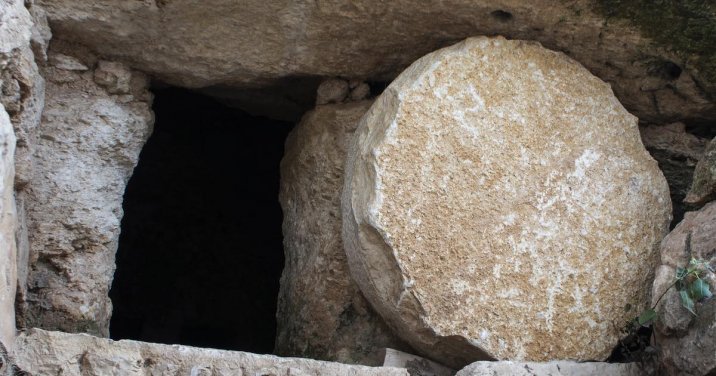On the road to Emmaus, Jesus says: “O foolish and slow in heart to believe in all that the prophets have spoken! Was it not necessary that the Christ suffer these things and enter into his glory?” (Luke 24:25–26 LEB). But what prophecy is Jesus referencing from “the prophets”? Most likely—the suffering servant in Isaiah.
Explore who the suffering servant in Isaiah is in this excerpt adapted from the book The Resurrected Servant in Isaiah by John D. Barry.
***
The servant in the book of Isaiah is one of the most intriguing figures in the prophetic Scriptures. Many people have stood in awe of the book’s prophecy either because of its virtual lack of theological precedence in ancient literature or because of the parallels between the servant, especially in Isaiah 52:13–53:12, and the portrayal of Jesus of Nazareth in the Gospels.
Explore articles about Holy Week.
The past 30 years of biblical scholarship have generally rejected that the servant in Isaiah 53 is resurrected, but there is ample reason to believe that the servant is resurrected. Here’s the passage in question, with the speakers identified:
[The prophet says,] “Yet Yahweh was pleased to crush [the servant]; he afflicted [the servant] (with sickness). If [Zion/Jerusalem] places [the servant’s] life a guilt offering, [the servant] will see offspring, [the servant] will prolong days. And the will of Yahweh is in [the servant’s] hand, it will succeed. Out of trouble of his life [the servant] will see light; [the servant] will be satisfied by his knowledge.” [Yahweh says,] “My righteous servant will bring justice to many and he will bear their iniquities. Therefore I, [Yahweh] will divide to [the servant] a portion among the many, and with [the] strong ones [the servant] shall divide bounty, because he exposed his life to death and was counted with transgressors, and he carried the sin of the many and will intercede for transgressors (Isaiah 53:10–12).
You’ve probably heard the argument that in Isaiah, the servant of Yahweh (or the LORD) is Israel. However, a close examination of the text shows that in Isaiah 49:5, there is a clear distinction between Israel and the servant:
And now Yahweh says, who formed me in the womb to be his servant, to bring Jacob back to him, and that Israel might be gathered to him, for I am honored in the sight of Yahweh, and my God has become my refuge.
Isaiah 49:6 also makes this distinction:
He [Yahweh] says, “It is too light a thing that you should be my servant to raise up the tribes of Jacob and to restore the survivors of Israel; I will give you as a light to the nations, that my salvation may reach to the end of the earth.”
The juxtaposition of Israel against the servant suggests that we should understand Isaiah 49:3—“You are Israel my servant”—as an annunciation of a new servant, who will go on to fulfill all or part of Israel’s role in bringing God’s salvation to the ends of the earth (compare Luke 3:22).
The individual in Isaiah 52:13–53:12 has taken up Israel’s commission as God’s chosen servant. It is his duty to reconcile God and humanity. But he is also made a guilt offering (Isaiah 53:10).
And here’s the clincher: Guilt offerings of bulls (or goats) died when offered; so the servant, as the guilt offering for God’s people must die (Lev 5:14–19; 7:7; compare Lev 16:22).
But something miraculous happens: The servant is alive—he is resurrected. He “sees offspring” and “prolongs days,” both of which can only happen in life (e.g., Gen 48:11; Isa 61:9; Exod 20:12; Deut 4:40; 5:16; 17:20; 25:15; Josh 24:31; Judg 2:7; Prov 3:1–2). Isaiah 53:11 further implies resurrection: “He will see light” (compare Isa 9:6; Psa 36:10; 49:20; Job 3:16; 33:28), and “he will be satisfied in his knowledge.”
“Because the servant exposed his life to death” and was resurrected, he is able to “carry the sin of many and continue to intercede for transgressors” (Isaiah 53:12). It is because of the servant’s death and resurrection that God’s relationship with Israel, and with all people, is restored.
Over 500 years before Jesus, there was a prophecy that an innocent servant would suffer and die for the sins of others—but also be raised to life again.
***
This post was adapted from The Resurrected Servant in Isaiah by John D. Barry. Get your copy and dig deeper into the prophecy of the suffering servant and the academic discussion surrounding it.





